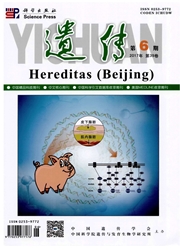

 中文摘要:
中文摘要:
硫酸软骨素蛋白聚糖4 ( chondroitin sulfate proteoglycan 4, CSPG4)最先被认定为具有高免疫原性的黑色素瘤细胞表面抗原,是一种跨膜蛋白聚糖。CSPG4虽然也像其他硫酸软骨素蛋白聚糖一样,人体发育过程中在许多正常组织都有少量表达,但是在像恶性黑色素瘤等许多人类癌症和肉瘤中都普遍存在过度表达的现象。另外,CSPCA也在头颈部的鳞状细胞癌和基底细胞样乳腺癌的肿瘤干细胞中表达,这说明CSPG4可能与这些癌症的恶化和复发有关。对CSPG4细胞分子生物学的研究发现,CSPG4通过与其它细胞表面蛋白和酪氨酸激酶受体作用来调控细胞内多条信号通路,这些信号通路影响着肿瘤细胞的转移、生长、存活和对化疗药物的抗性。尽管目前还不能将CSPG4作为黑色素瘤或者基底细胞样乳腺癌预后诊断的标志.但是大量体外和体内的实验结果已经证明CSPG4的单克隆抗体对肿瘤有抑制作用。斟此,CSPG4可以作为具有研究前景的药物靶标,用于开发针对相关肿瘤的综合治疗药物。
 英文摘要:
英文摘要:
Chondroitin sulfate proteoglycan 4, also known as high molecule weight-melanoma associated antigen, is a transmembrane cell surface proteoglycan originally identified as a highly im- munogenic tumor surface antigen of melanoma cells. Like other types of CSPGs, CSPG4 is expressed by a variety of normal human tissues during development. Moreover, it is found to be extensively o- ver-expressed by many types of human carcinomas and sarcomas such as malignant melanoma. It is expressed by cancer stem cells in squamous cell carcinoma of the head and neck and in basal breast carcinoma, which indicates its role in progression and reoccurrence of these cancers. Studies on the molecular biology of CSPG4 reveal that it can modulate several signal pathways by interacting with some cell surface proteins and receptor tyrosine kinases (RTKs), and thereby influence the surviv- al, growth, transfer and chemoresistance of tumor cells. Despite that there is no evidence supporting its value in prognostic prediction for melanoma or basal breast carcinoma, anti-tumor effects of CSPG4-specific monoclonal antibodies (mAb) have been observed in numerous in vivo and in vitro experiments. Therefore, CSPG4 may serve as a promising drug target and be used to develop novel combinatorial therapies for treatment of relevant cancers.
 同期刊论文项目
同期刊论文项目
 同项目期刊论文
同项目期刊论文
 期刊信息
期刊信息
